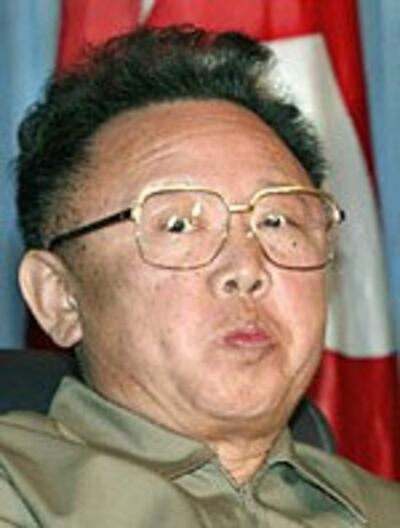Havel, Wiesel, Bondevik Cite New Duty To Protect Doctrine

WASHINGTON—The U.N. Security Council should demand immediate access to North Korea's most vulnerable people and move toward sanctions for crimes against humanity if Pyongyang fails to comply, a study commissioned by three leading rights advocates says.
“Indeed, it is clear that [North Korean leader] Kim Jong Il and his government are actively committing crimes against humanity,” according to former Czech president Vaclav Havel, Nobel laureate Elie Wiesel, and former Norwegian president Kjell Magne Bondevik.
“North Korea allowed as many as one million, and possibly many more, of its own people to die during the famine of the 1990s,” they wrote in the foreword to “Failure to Protect: A Call for the U.N. Security Council To Act in North Korea.” The report was released early Monday.
“Hunger and starvation remain a persistent problem, with over 37 percent of children in North Korea chronically malnourished. Furthermore, North Korea imprisons upwards of 200,000 people in its modern-day gulag, and it is estimated more than 400,000 have died in that system over 30 years,” they wrote.
“It is on this basis that we strongly urge the U.N. Security Council to take up the situation of North Korea. Protecting the people of North Korea requires nothing less.”
New U.N. doctrine aimed at genocide, war crimes
The three men commissioned the law firm DLA Piper LLP to work with the nonprofit U.S. Committee for Human Rights in North Korea on the study, which lays out a case for Security Council action under the 2005 U.N. General Assembly statement that:
“Each individual state has the responsibility to protect its population from genocide, war crimes, ethnic cleansing, and crimes against humanity…We accept that responsibility and will act in accordance with it…We are prepared to take collective action in a timely and decisive manner through the Security Council… should… national authorities manifestly fail to protect their populations.
“Each individual state has the responsibility to protect its population from genocide, war crimes, ethnic cleansing, and crimes against humanity…We accept that responsibility and will act in accordance with it…We are prepared to take collective action in a timely and decisive manner through the Security Council… should… national authorities manifestly fail to protect their populations.”
The report calls for a swift Security Council resolution urging immediate and unrestricted access by aid workers to North Korea’s most vulnerable groups, demanding an immediate visit by the U.N. Special Rapporteur on Human Rights in North Korea, and requesting “vigorous engagement” and regular reports on North Korea by the U.N.Secretary-General.
Failure to comply could prompt a binding resolution under Chapter 7 of the U.N.Charter. Chapter 7 covers sanctions and even military force, providing it is specifically authorized by the Security Council.
The Security Council earlier this month unanimously approved Resolution 1718, also under Chapter 7, banning North Korean trade in materials linked to its deadly weapons program, ballistic missiles, high-end conventional weapons and luxury goods.
Those sanctions followed North Korea’s declared nuclear test on Oct. 9, which sparked an international outcry. The North Korean regime, tightly closed and frequently described as Stalinist, is now more cut off from the rest of the world than at any time in history.
Original reporting by RFA's Korean service. Service director: Jaehoon Ahn. Additional reporting by David Beasley. Written and produced in English by Sarah Jackson-Han.
